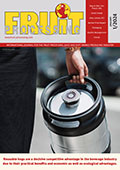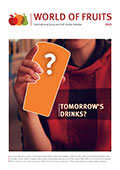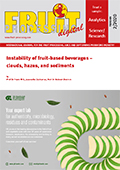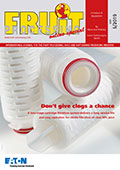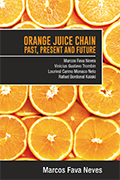First sustainable juices roll off conveyor belt at Rotterdam Food Hub
innocent, manufacturer of healthy drinks, opens its own factory, the blender, for the first time since it was founded in 1999.
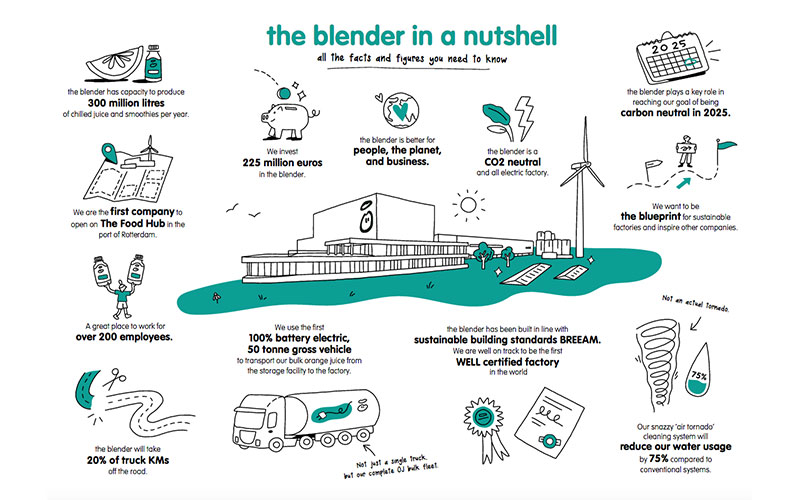
innocent, manufacturer of healthy drinks, opens its own factory, the blender, for the first time since it was founded in 1999. After a trial period, the first juices and smoothies roll off the conveyor belt last week. The production has a total capacity of up to 300 million litres per year for the whole of Europe.
innocent was the first customer to choose Rotterdam Food Hub as its location, because its products and ingredients have to travel much shorter distances here, reducing its logistics chain by 20 %. The blender is a completely carbon neutral electric drinks factory, in which everything revolves around sustainability. The brand new factory will create 200 new jobs for Rotterdam and the surrounding area.
The blender: carbon neutral and sustainable
One of the ways in which innocent achieves its sustainability ambition is by generating energy from wind turbines and solar panels. The heat from the factory is also reused. The blender is not only carbon neutral, but also sustainable because it uses significantly less water and produces less waste. As part of the cooperation between the 500 B Corps that share the same sustainable ambition, a commitment was made in 2019 to be fully carbon neutral by 2030, 20 years earlier than agreed in the Paris Climate Agreement.
However, innocent harbours the ambition to achieve carbon neutral operations by 2025 through compensation projects. In order to operate completely carbon neutral, innocent has entered into a partnership with Rotterdam-based Zero Emission Transport Company BREYTNER and joint venture partner HN Post & Zonen. They supply a complete fleet of electric 50-tonne trucks for transporting the orange juice by tank. With this step, innocent lays the foundation for completely zero-emission transport in the future. In addition, the smoothie and juice producer hopes to inspire other companies to adopt sustainable, emission-free transport.
innocent opts for the Port of Rotterdam
The Port of Rotterdam was the best choice for innocent, as it ensures that the distances for delivery of raw materials and distribution of the smoothies and juices are much shorter than elsewhere. “innocent’s supply chain largely comes together in Rotterdam; the juice and other ingredients arrive in containers at the Port of Rotterdam.
“The construction of our own factory in Rotterdam Food Hub will shorten innocent’s supply chain by 20%. It doesn’t stop there. From the drawing board to production, the blender was designed with sustainability in mind. This holistic approach and use of the latest technology makes Blender a factory that is better for people, planet and business.” says Andy Joynson, site director innocent.
Emile Hoogsteden, Commercial Director, Port of Rotterdam Authority: “We are proud to welcome innocent as the first customer of the Rotterdam Food Hub. The arrival of the sustainable blender factory is a great fit with the Food Hub’s concept of accommodating various fresh and frozen food flows. In addition, innocent’s sustainability ambitions are perfectly in line with those of the Port of Rotterdam.”
Rotterdam Food Hub
With the realisation of the Rotterdam Food Hub, the Port of Rotterdam Authority aims to further expand its position as the largest West European transit port for products in the agriculture and horticulture sectors. The business park, located on the Calandkanaal at the entrance to the Maasvlakte, occupies about 60 hectares and has been specially designed to optimally facilitate companies in the agrifood sector.
The agrifood sector involves handling perishable goods and speed is crucial. This is why the Food Hub occupies a central location. The large deep-sea container terminals are just a stone’s throw away, as are Cool Port and the cold storage warehouses on the Maasvlakte and in Eemhaven. The proximity of Greenports such as Barendrecht, Ridderkerk and Westland also make this an ideal location. Another advantage is that various facilities can be shared at the Rotterdam Food Hub site. It means that quays and facilities related to transport, storage, access control and customs, among others, can be shared efficiently.
More than half of the Rotterdam Food Hub site has now been released to customers. More companies will follow in the coming years.
Growth market
Agrifood is a growth market due to the increasing population and the rise in prosperity, especially in emerging economies. After the United States, the Netherlands is the world’s largest agricultural exporter. In 2020, trade amounted to almost €96 billion. It has helped make the Port of Rotterdam the market leader in Western Europe with 19 million tonnes of transshipments per year. The creation of the Rotterdam Food Hub responds to the increasing need of businesses in the agrifood segment for locations offering possibilities for short chains.



